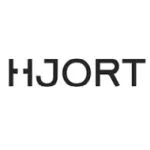As the number business enterprises in Norway have chosen to organize themselves into corporations or corporation-like structures increases, it became necessary to amend employment guidelines in the Working Environment Act.
Background
From January 1, 2024, the implementation of several amendments to the Norwegian Working Environment Act concerning the extension of responsibility for enterprises that are members of a corporate group will go into effect. The reason for these legislative changes is that an increasing number of businesses choose to organize themselves into corporations or corporation-like structures. For instance, a business may choose to implement corporate structure to differentiate between various industries or geographical locations. However, through the extensive study of the Norwegian labour model, it has been revealed that corporate structures in many cases can challenge the job security and rights of employees. To strengthen workers' rights, legislators have therefore deemed it necessary to extend the responsibility for certain employer functions to encompass the entire corporation.
The expansion of employer responsibility
The Working Environment Act imposes a duty on employers to ensure compliance with all provisions given in and pursuant to the law. Under current law, the legal entity itself, such as a corporation, foundation, or municipality, is considered the "employer" in the sense of the law and is thus obliged to comply with the regulations. When a business is part of a corporation, each legal entity in the corporation is responsible for ensuring that employees' rights and duties are upheld within its operation, independently of the corporation's other activities. However, from January 1, 2024, the following employer obligations will also apply to other legal entities in the corporation:
The obligation to provide alternative suitable work
In the event of downsizing or reorganization, the duty to offer other available suitable employment to employees considered for termination will no longer be limited to the enterprise where the employee is employed but will be extended to include all Norwegian enterprises in the group. The purpose of this extension of employer obligations is to provide businesses with incentives to develop uniform and long-term personnel strategies while also helping to strengthen job security for employees.
Preferential right to new employment
Employees' preferential right to a new position in the event of downsizing or reorganisation is extended to the entire group.
Duty of disclosure and consultation
Groups with enterprises that together employ at least 50 employees will be required to establish frameworks for cooperation, information and discussions across enterprises. The purpose of this amendment is to strengthen the employees' real opportunities to participate in the group.
Practical consequences for employers in groups
The most significant consequence of the legislative change will be seen in reorganizations and downsizing processes in larger corporations. Under the legislative changes, employers in corporate structures can no longer limit their considerations solely to the specific business where the process is actually taking place. Instead, if the employer cannot offer suitable employment themselves, they must investigate possibilities for other suitable employment in the other Norwegian companies within the group. Otherwise, the employer risks the termination being deemed invalid. The legislative changes will entail clear administrative and financial consequences for the group's operations, as a new step is added to a process that is already quite comprehensive and resource-intensive.
An important measure to prevent the process from becoming more extensive and resource-intensive than necessary is to ensure that the group is organized in such a way that the enterprises internally have a well-functioning cooperation with unified personnel strategies and common routines for efficient handling of such processes. It is imperative to establish frameworks for common information flow, where it is visible which positions are vacant or could become vacant in the near future in the various Norwegian corporate companies. This information must be provided internally in the corporation, but also externally to employees with preferential rights, so that they have real opportunities to stay informed about potential positions.
In order to make the transition to smoother, we recommend to implement changes to adhere the new guidelines as soon as possible.
The content of this article is intended to provide a general guide to the subject matter. Specialist advice should be sought about your specific circumstances.



